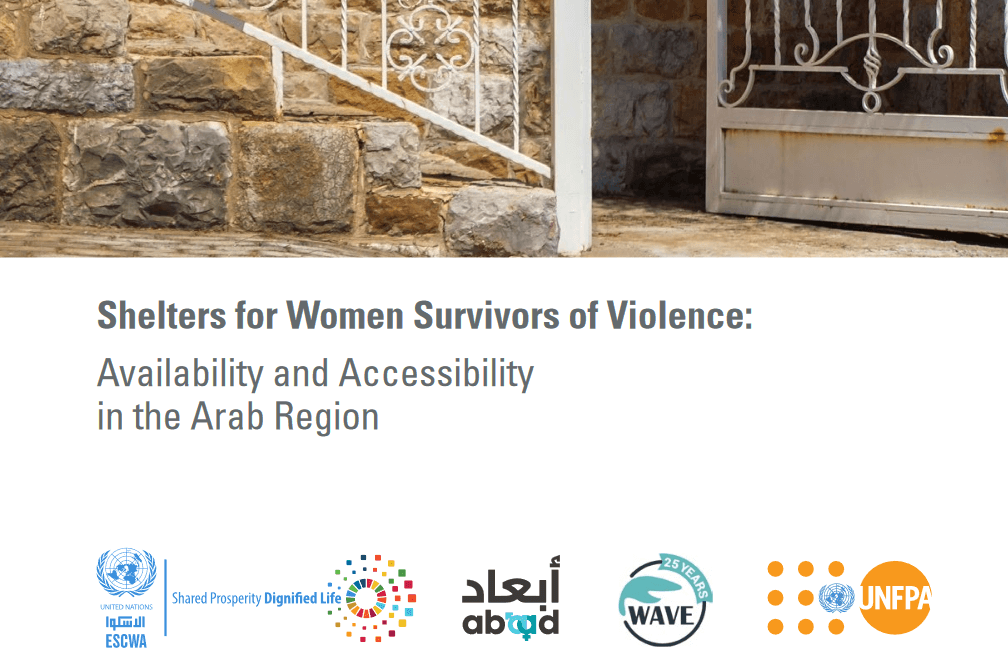April 14th, 2020- A new publication which examines the importance, as well as the availability and accessibility, of shelters in the Arab region, has been published by the United Nations Economic and Social Commission for Western Asia.
This study was produced produced by the United Nations Economic and Social Commission for Western Asia (ESCWA), in partnership with the United Nations Population Fund – Regional Office for Arab States (UNFPA-ROAS), Women Against Violence Europe (WAVE) and ABAAD Resource Centre for Gender Equality (ABAAD).
Read the executive summary below and follow the link to read the study in its entirety.
Violence against women is a global pandemic and a violation of an individual’s human rights. Data show that 35.4 per cent of ever-married women in the Arab region have experienced physical or sexual violence by an intimate partner during their lifetime. Eradicating violence against women requires a comprehensive, holistic approach to address the impact on women’s physical and psychosocial health, as well as her participation in the economy and public life. Shelters for survivors of violence are an essential component of such a comprehensive and coordinated response and are globally recognized as a useful option for women escaping violence. This is because shelters provide survivors with the opportunity to distance themselves from abusive relationships and consider their choices for a life free from violence.
The provision of shelter is closely linked to State obligations under international human rights instruments to address violence against women and protect survivors. Under due diligence obligations, States are held responsible for ensuring that women and children are safe from violence, even when violence occurs within the home. This includes prevention, protection, prosecution, penalization and the provision of redress for acts of violence against women. Shelters are central to the overall protection mechanism offered by the State and non-governmental organizations and access to shelters can play a vital role in the prevention of violence through awareness-raising and social change. Notably, the Special Rapporteur on violence against women, its causes and consequences has declared the availability of shelters and protection orders as part of a State’s due diligence. Furthermore, the UnitedNations Handbook for Legislation on Violence Against Women (2012) emphasizes that comprehensive and robust services should be reflected in national legislation and implemented through a robust criminal justice system.
This study, produced by the United Nations Economic and Social Commission for Western Asia (ESCWA), in partnership with the United Nations Population Fund – Regional Office for Arab States (UNFPA-ROAS), Women Against Violence Europe (WAVE) and ABAAD Resource Centre for Gender Equality (ABAAD), examines the importance, as well as the availability and accessibility, of shelters in the Arab region, providing a nuanced understanding of the relationship between overall national legal frameworks and the daily operation of shelters.
States in the Arab region acknowledge the pandemic nature of violence against women, which has resulted in the development of legislation, policies and services, including shelters. Despite these advances, this study reveals several concerns across the region regarding the prevalence and accessibility of shelters; gaps in legislation governing shelters; and the capacity, financing and service provision of shelters.
Download and read the publication by clicking here.













